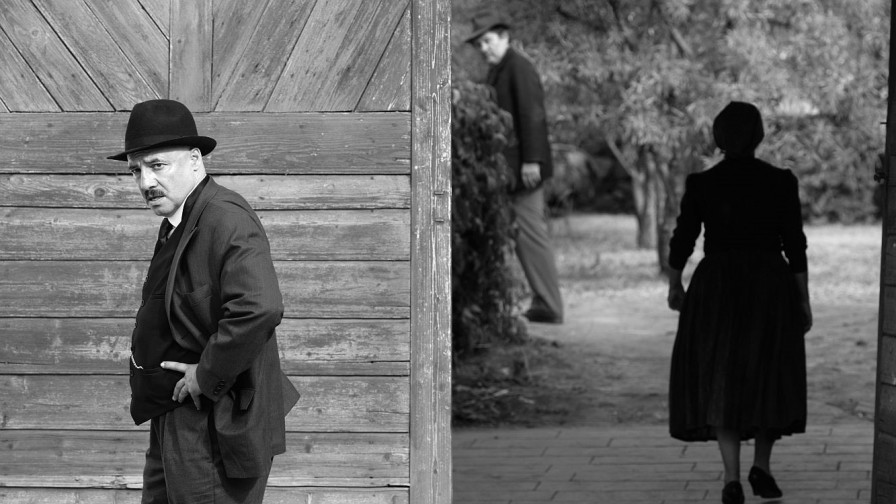Prestigious Awards for 1945
1945 won the Avner Shalev - Yad Vashem Chairman’s Award for Artistic Achievement in Holocaust-related film at the 34th Jerusalem Film Festival. As the int’l jury's statement said, "this innovative mystery unravels amid a landscape of cataclysm. Its stunning cinematic vision exposes the corrosive power of anti-Semitism and collaboration during the Holocaust."
Ferenc Török also got the Best Director Award at Jewish Film Festival Berlin-Brandenburg. The festival jury chose 1945, because "it captures the aftermath of the Holocaust in a small Hungarian village including its bitter mixture of grief and guilt. With emotional black and white pictures of old western movies Török doesn’t show typical duels, but the mute confrontation between offenders and followers on one side as well as survivors and relatives of the victims on the other side. Török stages a haunting atmosphere captivating the viewer from the very first picture. A movie that feels like a classic already.”
1945 takes place on the shimmering heat of a summer’s day in rural Hungary in August 1945. A kind of torpor envelops the village. The drug store owner is getting ready for his son’s wedding, the signalman is changing the points at the station, and the coach driver is waiting for customers. Two strange men descend from the train, clad in black. They are father and son; survivors of the Holocaust. They walk in silence behind a waggon on which they are transporting two boxes. Rumours spread like wildfire through the village. Do the boxes contain powder, perfume and soap, and are these men going to compete with the local chemist shop? Are they relatives of the former shop owner, a Jew who was first denounced and then deported? Fear soon spreads throughout the community, for many of them were involved in the crimes of the recent past – whether it be betrayal, silence or theft. Things that were almost forgotten now come to the fore with a vengeance. The past is not dead. It has not even passed. Ferenc Török’s film is a non-folkloristic depiction of the interconnection between crime and punishment, presented in sharply contoured black-and-white photography. A Hungarian village becomes a mirror for the failure of an entire society.
